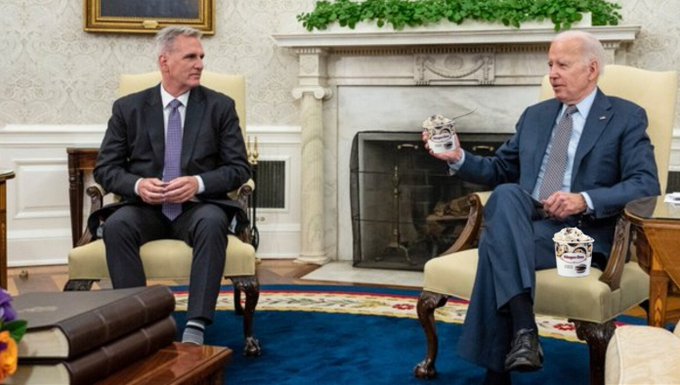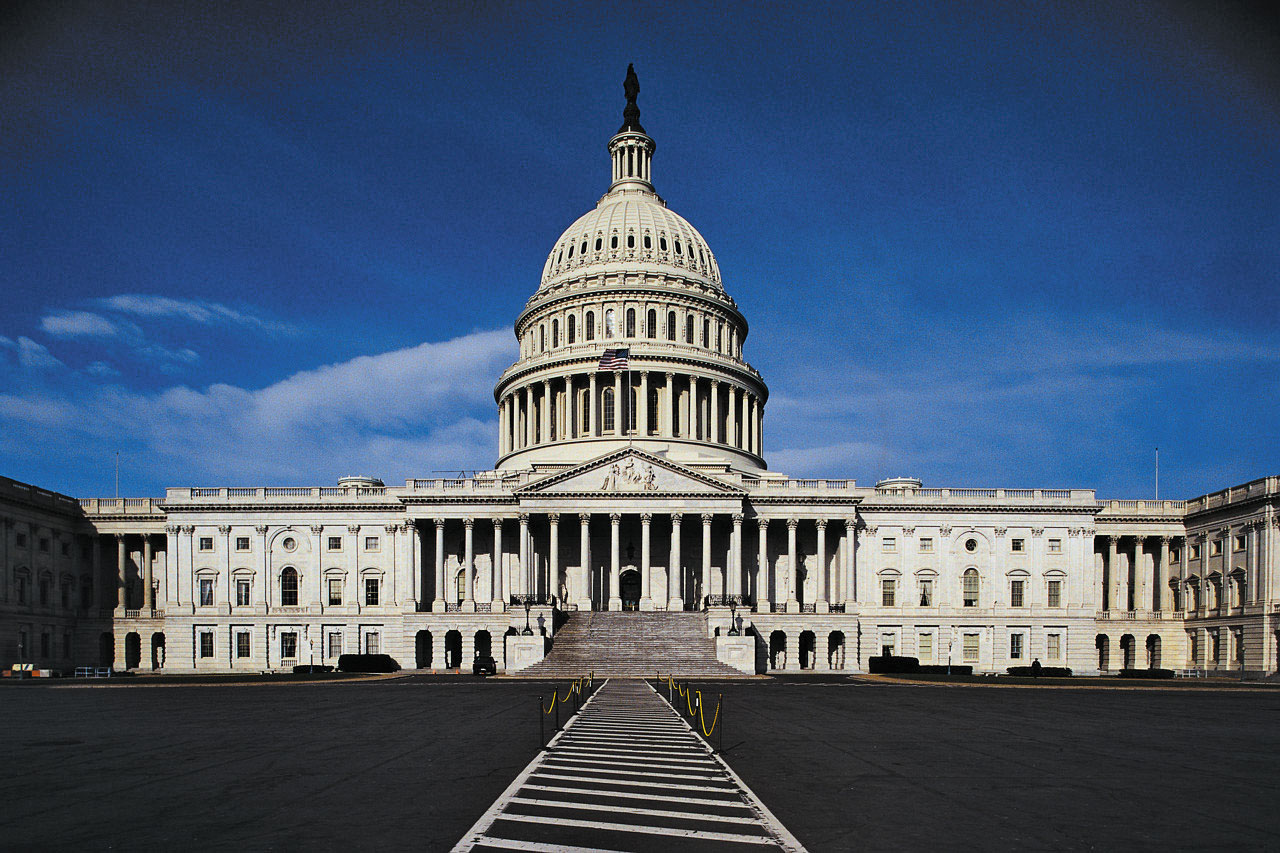United States lawmakers in the House of Representatives voted yesterday to raise the national borrowing limit as a crucial first step to averting a catastrophic default, greenlighting a pact struck between Washington's warring parties after weeks of tense negotiations.
The deal between Democratic President Joe Biden and Republicans in the House suspends the debt ceiling through 2024, slightly cutting government spending next year.
"Passing the Fiscal Responsibility Act is a crucial first step for putting America back on track," said Speaker Kevin McCarthy, the top Republican in Congress. "It does what is responsible for our children, what is possible in divided government, and what is required by our principles and promises."
Biden hailed the 314-117 vote as a "critical step" to protecting the country's post-pandemic economic recovery that had been achieved through "bipartisan compromise."
The drama capped a tense few days on Capitol Hill, with the Treasury expecting to run out of the money as soon as next Monday.
The Republican majority in the House needed help from dozens of Democrats to fend off a right-wing rebellion – 71 conservatives voted no – and advance the deal to the Senate, which is expected to follow suit by the end of the week.
McCarthy's lieutenants had spent the final hours frantically whipping votes, as senior Democrats vowed that their members would put the nation's finances above the temptation to give the opposition a bloody nose.
"The consequences of slipping past the deadline would reverberate across the world and take years to recover from," Chuck Schumer, the leader of the Democratic-led Senate, warned ahead of the lower chamber's vote.
"Remember, a default would almost certainly trigger another recession, send costs soaring, kill millions of jobs – hardworking people thrown out of work through no fault of their own."
The nonpartisan Congressional Budget Office estimates that the proposed spending limits for 2024 and 2025 would trim nearly USD 1.5 trillion from projected federal budget deficits over the next decade. The total debt is more than USD 31 trillion.
The vote was the result of weeks of on-off talks between the McCarthy and Biden teams, with Democrats accusing Republicans of holding the economy "hostage" by insisting on spending cuts to accompany the hike in the borrowing cap.
Fiscal hawks on the right of Congress have accused the White House of pushing unsustainable spending programs and say negotiating the future budget must be a condition of hiking the limit, which covers debts already incurred.
The high drama seen in recent debt ceiling and budget fights was absent however as House Minority Leader Hakeem Jeffries had been open that his members would provide enough votes to ensure the bill was never in danger.
But it was a high wire act for McCarthy, whose job would have been on the line had the majority of his members rejected the pact, only to see it pushed through anyway.
Securing 149 Republican votes – roughly two-thirds of his caucus – allows McCarthy to project strength in his bid to face down criticism from the Republican right, which has accused him of capitulating to the White House by not demanding steeper cuts.




